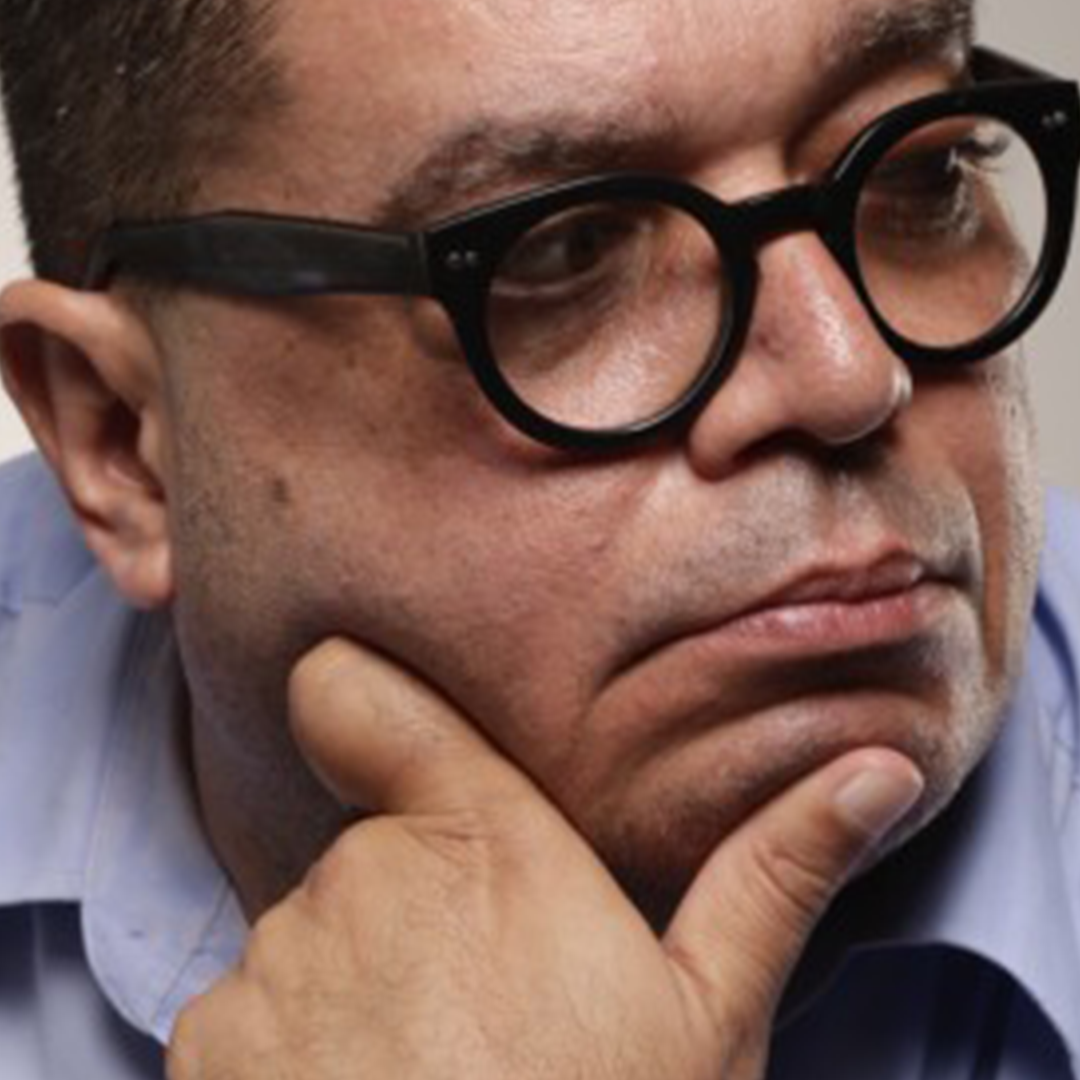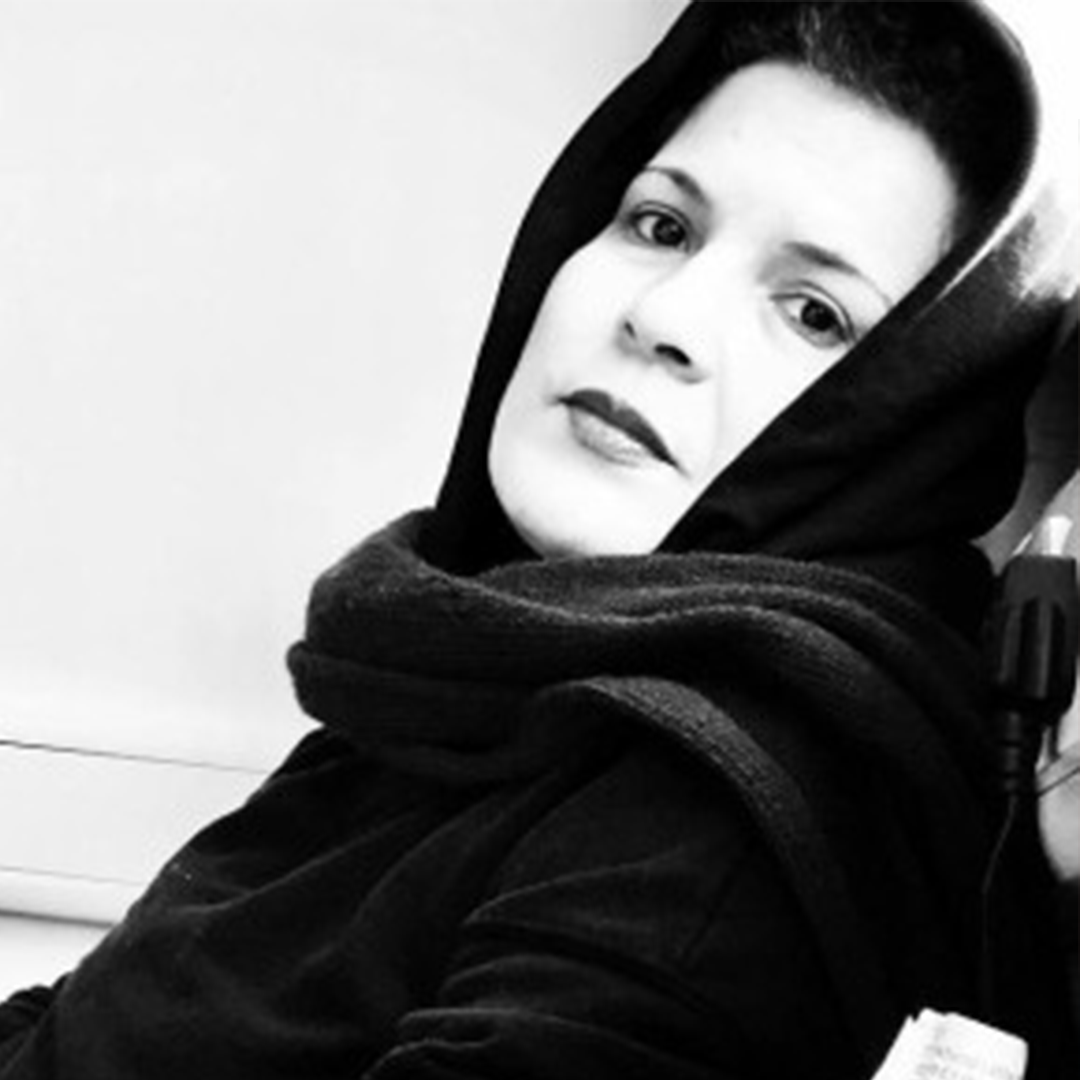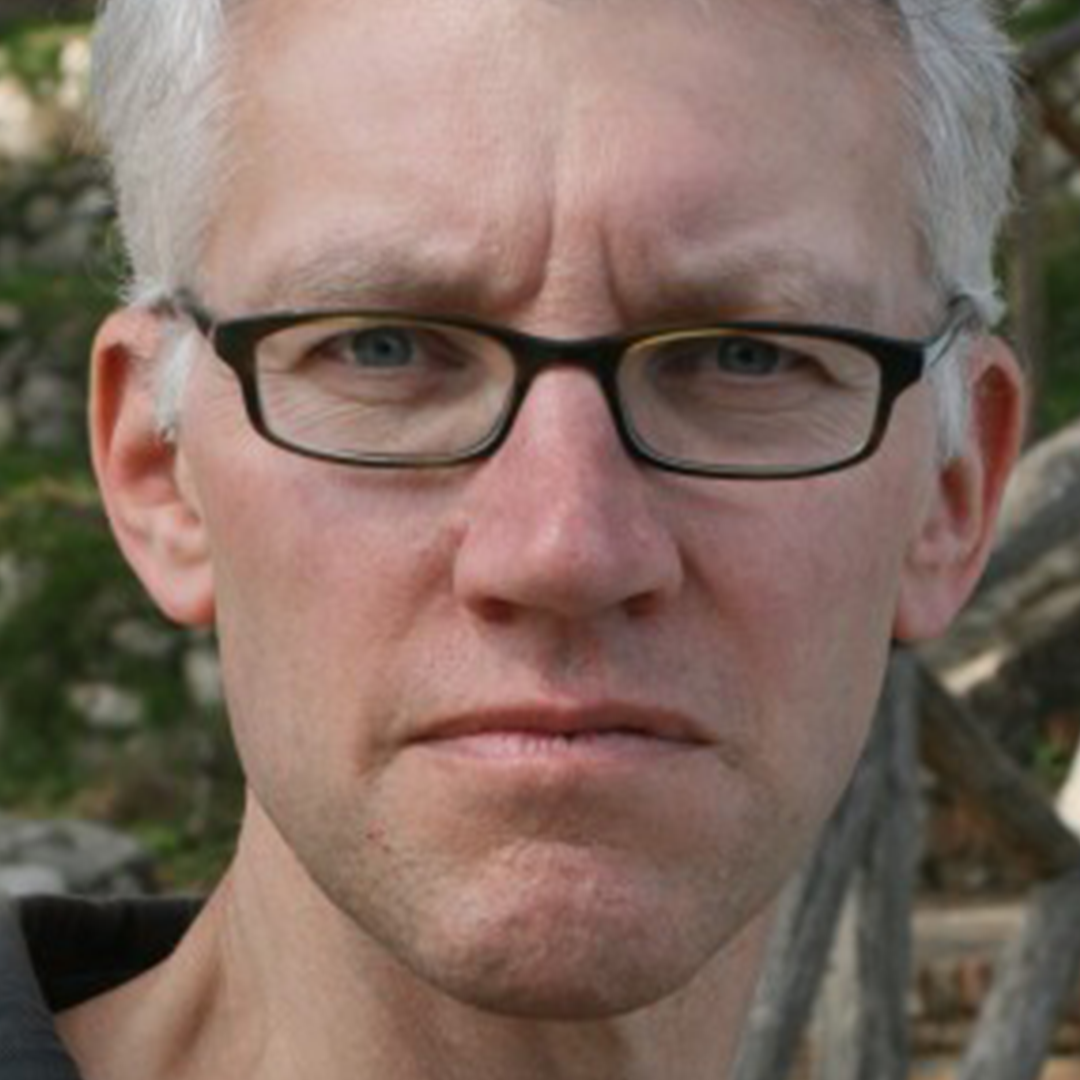10 Jun 2022 | Brazil, News and features
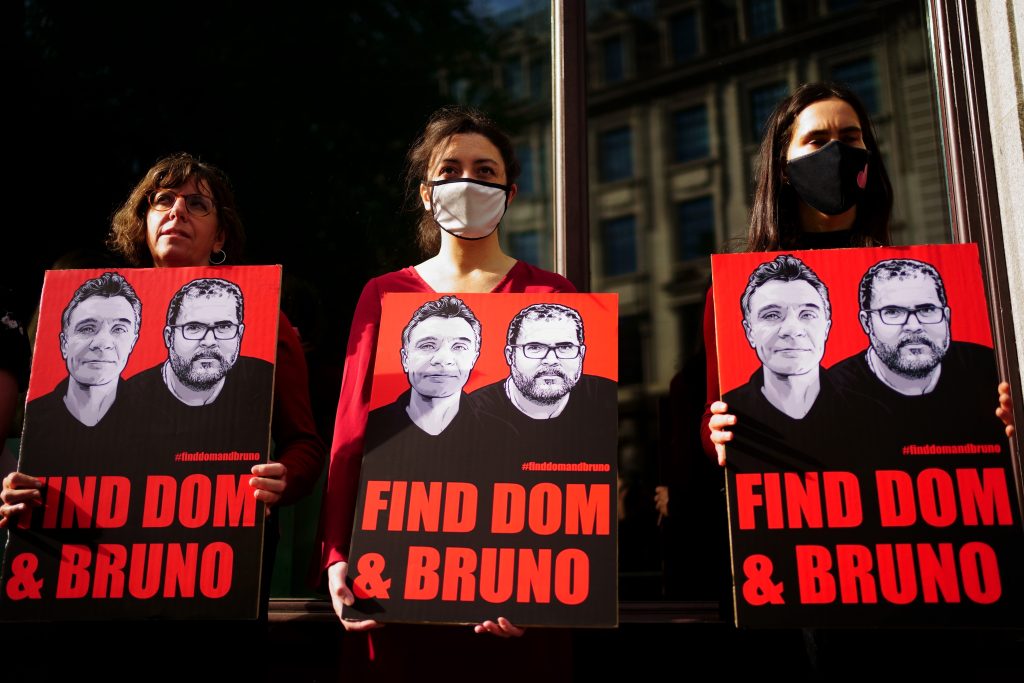
Supporters at a vigil outside the Brazilian embassy in London for Dom Phillips and Bruno Araujo Pereira. Credit: Victoria Jones/PA Images
Another day in Brazil without any news of British journalist Dom Phillips and Bruno Araújo Pereira. The pair have been missing in the Vale do Javari region, in the Brazilian Amazon, since 6 June. They were last seen as they left the São Rafael riverside community, on their way to the city of Atalaia do Norte.
Phillips, a journalist who writes for the Guardian, has lived in Brazil for almost 15 years. Passionate about the Amazon, the largest rainforest in the world, he has travelled extensively in the region, covering, among other subjects, the environmental crisis in Brazil and issues that plague indigenous communities. At the time of his disappearance he was working on a book about the environment, with support from the Alicia Patterson Foundation. Pereira, a long time official of Brazil’s Indigenous rights organisation, is a former employee of the National Foundation for the Indian (FUNAI), an agency of the Brazilian government.
Both were travelling by boat on the Itaquaí River, in the Vale do Javari region, which is close to the border with Peru. Index spoke to Paulo Marubo, executive director of the Union of Indigenous Organizations of the Javari Valley (Univaja), who was one of the last people to see the pair. He said they were there visiting Univaja’s team on the border of the indigenous reserve. On Saturday, they were all threatened by a group of miners and developers, carrying guns.
“Dom even took a photo of these gangs (showing their guns), which got lost with his disappearance, and they left indignant about it. On Sunday they went out and stopped at a village called São Rafael, where they looked for a man called Churrasco to deal with a lake management project. But he wasn’t there. After they left, we didn’t hear from them anymore,” Marubo told Index.
Marubo said that those at the forefront of indigenous movements often receive threats. He added that the developers feel supported by the current Brazilian president, Jair Bolsonaro, who does not help the indigenous population or protect the lands that are being destroyed. Thus, they operate in a situation where Univaja constantly fight with the state, not just criminal gangs.
“An example of this is Bruno himself, who asked for a license from the current government, which is anti-indigenous,” he said.
In a statement from Tuesday, Bolsonaro, who has not hidden his support of development projects in the Amazon, blamed the missing men rather than the gangs that operate out of the Amazon and make it so dangerous.
“Two people in a boat, in a completely wild region like this, is an adventure that isn’t recommendable for one to do,” he said. “Anything could happen — an accident could happen, they could have been executed — anything.”
The executive coordinator of Univaja has also been targeted by a fisherman, known as Nei, who was interrogated and released by the police after the disappearance of Phillips and Pereira.
In the region where they disappeared, many riverside peoples live, in places that are difficult to access. These areas are rife with crime, such as drug trafficking and illegal deforestation, commanded not only by Brazilians but also by Peruvians and Colombians. All these groups seek absolute control of the region, so the risk to the lives of those who speak out against them or fight for the preservation of the Amazon is high. In Pereira’s case, he had already been threatened by loggers and even fishermen.
There are many examples that show the difficulties and dangers that plague the Amazon region. One of the most famous to date is the murder of the activist Chico Mendes, on 22 December, 1988. An active voice in the struggle to preserve the Amazon, Mendes was frequently threatened by powerful local landowners. Three days before Christmas in 1988, when he was getting ready to take a shower at his home in Xapuri, Acre, he was murdered by Darci Alves, who shot him in the chest. Alves was the son of an influential developer in the region.
The murder of indigenous people has sadly become a devastating trend in Brazil recently. In April, the Pastoral Land Commission released a report revealing that 109 indigenous murders were registered in the country in 2021.
At the same time, the situation for journalists is deteriorating. According to the Brazilian Association of Investigative Journalism (Abraji), from 2019 to May 2022 attacks against press professionals grew by 248%. In 2021, 453 attacks were counted, with Bolsonaro being accountable for 89 verbal insults to journalists.
“The situation is worsening. In 2018, when I was reporting on the elections for governor in Rio Grande do Sul (in Brazil’s south) with two other female journalists from a traditional left-wing paper, some Bolsonaro’s supporters approached us trying to see what we were writing, trying to get my badge to look for me on social media, a very hostile atmosphere,” said Filipe Strazzer, a journalist who at the time was working for the newspaper O Estado de São Paulo, one of the most important in Brazil.
“About environmental issues, I wouldn’t be brave enough to report on that. The Amazon is a lawless land, too many risks involved, powerful people who absolutely control it, so it makes me fearful, and you can’t really develop your work,” he said, remembering the famous case of the missionary Dorothy Stang. Born in the United States and with Brazilian citizenship, she was an environmental activist who was murdered in the Amazon, in the state of Pará, in February 2005. At the time, she was being threatened by rich farmers, landowners and loggers.
In the case of the disappearance of Phillips and Pereira, a search is underway. Around 250 people, mostly military personnel with experience in operations in a jungle environment, are participating in the search. Two aircraft, three drones and 20 vehicles are being used, according to Globo’s website.
But Marubo believes that this effort will not be enough to find them and that more needs to be done. The area is dense, difficult terrain and so they need to go into the lakes, into the forests, and not just stick to the main rivers, he said.
“I have asked the federal police to carry out the investigation in this way and not give up because otherwise these bandits will laugh in our face,” said Marubo.
In an open letter initiated by The Guardian and Washington Post, editors from around the world asked that the search be intensified and that the Brazilian government give more priority to the case.
“We ask that you urgently step up and fully resource the effort to locate Dom and Bruno, and that you provide all possible support to their families and friends,” the letter said.
We support this letter. The entire Index on Censorship team is hoping that Dom Phillips and Bruno Araújo Pereira will be found alive and that more priority will be given to promoting and protecting those defending land, and those reporting on it.
30 Mar 2020 | Magazine, Magazine Contents, Volume 49.01 Spring 2020
[vc_row][vc_column][vc_custom_heading text=”With contributions from Ak Welsapar, Julian Baggini, Alison Flood, Jean-Paul Marthoz and Victoria Pavlova”][/vc_column][/vc_row][vc_row][vc_column][vc_column_text]
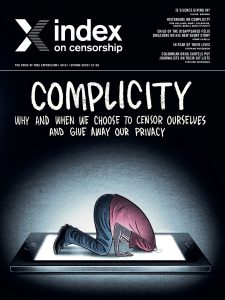 The Spring 2020 issue of Index on Censorship magazine looks at our own role in free speech violations. In this issue we talk to Swedish people who are willingly having microchips inserted under their skin. Noelle Mateer writes about living in China as her neighbours, and her landlord, embraced video surveillance cameras. The historian Tom Holland highlights the best examples from the past of people willing to self-censor. Jemimah Steinfeld discusses holding back from difficult conversations at the dinner table, alongside interviewing Helen Lewis on one of the most heated conversations of today. And Steven Borowiec asks why a North Korean is protesting against the current South Korean government. Plus Mark Frary tests the popular apps to see how much data you are knowingly – or unknowingly – giving away.
The Spring 2020 issue of Index on Censorship magazine looks at our own role in free speech violations. In this issue we talk to Swedish people who are willingly having microchips inserted under their skin. Noelle Mateer writes about living in China as her neighbours, and her landlord, embraced video surveillance cameras. The historian Tom Holland highlights the best examples from the past of people willing to self-censor. Jemimah Steinfeld discusses holding back from difficult conversations at the dinner table, alongside interviewing Helen Lewis on one of the most heated conversations of today. And Steven Borowiec asks why a North Korean is protesting against the current South Korean government. Plus Mark Frary tests the popular apps to see how much data you are knowingly – or unknowingly – giving away.
In our In Focus section, we sit down with different generations of people from Turkey and China and discuss with them what they can and cannot talk about today compared to the past. We also look at how as world demand for cocaine grows, journalists in Colombia are increasingly under threat. Finally, is internet browsing biased against LBGTQ stories? A special Index investigation.
Our culture section contains an exclusive short story from Libyan writer Najwa Bin Shatwan about an author changing her story to people please, as well as stories from Argentina and Bangladesh.
[/vc_column_text][/vc_column][/vc_row][vc_row][vc_column][vc_custom_heading text=”Special Report”][/vc_column][/vc_row][vc_row][vc_column][vc_column_text]Willingly watched by Noelle Mateer: Chinese people are installing their own video cameras as they believe losing privacy is a price they are willing to pay for enhanced safety
The big deal by Jean-Paul Marthoz: French journalists past and present have felt pressure to conform to the view of the tribe in their reporting
Don’t let them call the tune by Jeffrey Wasserstrom: A professor debates the moral questions about speaking at events sponsored by an organisation with links to the Chinese government
Chipping away at our privacy by Nathalie Rothschild: Swedes are having microchips inserted under their skin. What does that mean for their privacy?
There’s nothing wrong with being scared by Kirsten Han: As a journalist from Singapore grows up, her views on those who have self-censored change
How to ruin a good dinner party by Jemimah Steinfeld: We’re told not to discuss sex, politics and religion at the dinner table, but what happens to our free speech when we give in to that rule?
Sshh… No speaking out by Alison Flood: Historians Tom Holland, Mary Fulbrook, Serhii Plokhy and Daniel Beer discuss the people from the past who were guilty of complicity
Making foes out of friends by Steven Borowiec: North Korea’s grave human rights record is off the negotiation table in talks with South Korea. Why?
Nothing in life is free by Mark Frary: An investigation into how much information and privacy we are giving away on our phones
Not my turf by Jemimah Steinfeld: Helen Lewis argues that vitriol around the trans debate means only extreme voices are being heard
Stripsearch by Martin Rowson: You’ve just signed away your freedom to dream in private
Driven towards the exit by Victoria Pavlova: As Bulgarian media is bought up by those with ties to the government, journalists are being forced out of the industry
Shadowing the golden age of Soviet censorship by Ak Welsapar: The Turkmen author discusses those who got in bed with the old regime, and what’s happening now
Silent majority by Stefano Pozzebon: A culture of fear has taken over Venezuela, where people are facing prison for being critical
Academically challenged by Kaya Genç: A Turkish academic who worried about publicly criticising the government hit a tipping point once her name was faked on a petition
Unhealthy market by Charlotte Middlehurst: As coronavirus affects China’s economy, will a weaker market mean international companies have more power to stand up for freedom of expression?
When silence is not enough by Julian Baggini: The philosopher ponders the dilemma of when you have to speak out and when it is OK not to[/vc_column_text][/vc_column][/vc_row][vc_row][vc_column][vc_custom_heading text=”In Focus”][vc_column_text]Generations apart by Kaya Genç and Karoline Kan: We sat down with Turkish and Chinese families to hear whether things really are that different between the generations when it comes to free speech
Crossing the line by Stephen Woodman: Cartels trading in cocaine are taking violent action to stop journalists reporting on them
A slap in the face by Alessio Perrone: Meet the Italian journalist who has had to fight over 126 lawsuits all aimed at silencing her
Con (census) by Jessica Ní Mhainín: Turns out national censuses are controversial, especially in the countries where information is most tightly controlled
The documentary Bolsonaro doesn’t want made by Rachael Jolley: Brazil’s president has pulled the plug on funding for the TV series Transversais. Why? We speak to the director and publish extracts from its pitch
Queer erasure by Andy Lee Roth and April Anderson: Internet browsing can be biased against LGBTQ people, new exclusive research shows[/vc_column_text][/vc_column][/vc_row][vc_row][vc_column][vc_custom_heading text=”Culture”][vc_column_text]Up in smoke by Félix Bruzzone: A semi-autobiographical story from the son of two of Argentina’s disappeared
Between the gavel and the anvil by Najwa Bin Shatwan: A new short story about a Libyan author who starts changing her story to please neighbours
We could all disappear by Neamat Imam: The Bangladesh novelist on why his next book is about a famous writer who disappeared in the 1970s[/vc_column_text][/vc_column][/vc_row][vc_row][vc_column][vc_custom_heading text=”Index around the world”][vc_column_text]Demand points of view by Orna Herr: A new Index initiative has allowed people to debate about all of the issues we’re otherwise avoiding[/vc_column_text][/vc_column][/vc_row][vc_row][vc_column][vc_custom_heading text=”Endnote”][vc_column_text]Ticking the boxes by Jemimah Steinfeld: Voter turnout has never felt more important and has led to many new organisations setting out to encourage this. But they face many obstacles[/vc_column_text][/vc_column][/vc_row][vc_row][vc_column width=”1/3″][vc_custom_heading text=”Subscribe”][vc_column_text]In print, online, in your mailbox, on your iPad.
Subscription options from £18 or just £1.49 in the App Store for a digital issue.
Every subscriber helps support Index on Censorship’s projects around the world.
 SUBSCRIBE NOW[/vc_column_text][/vc_column][vc_column width=”1/3″][vc_custom_heading text=”Read”][vc_column_text]The playwright Arthur Miller wrote an essay for Index in 1978 entitled The Sin of Power. We reproduce it for the first time on our website and theatre director Nicholas Hytner responds to it in the magazine
SUBSCRIBE NOW[/vc_column_text][/vc_column][vc_column width=”1/3″][vc_custom_heading text=”Read”][vc_column_text]The playwright Arthur Miller wrote an essay for Index in 1978 entitled The Sin of Power. We reproduce it for the first time on our website and theatre director Nicholas Hytner responds to it in the magazine
READ HERE[/vc_column_text][/vc_column][vc_column width=”1/3″][vc_custom_heading text=”Listen”][vc_column_text]In the Index on Censorship autumn 2019 podcast, we focus on how travel restrictions at borders are limiting the flow of free thought and ideas. Lewis Jennings and Sally Gimson talk to trans woman and activist Peppermint; San Diego photojournalist Ariana Drehsler and Index’s South Korean correspondent Steven Borowiec
LISTEN HERE[/vc_column_text][/vc_column][/vc_row]


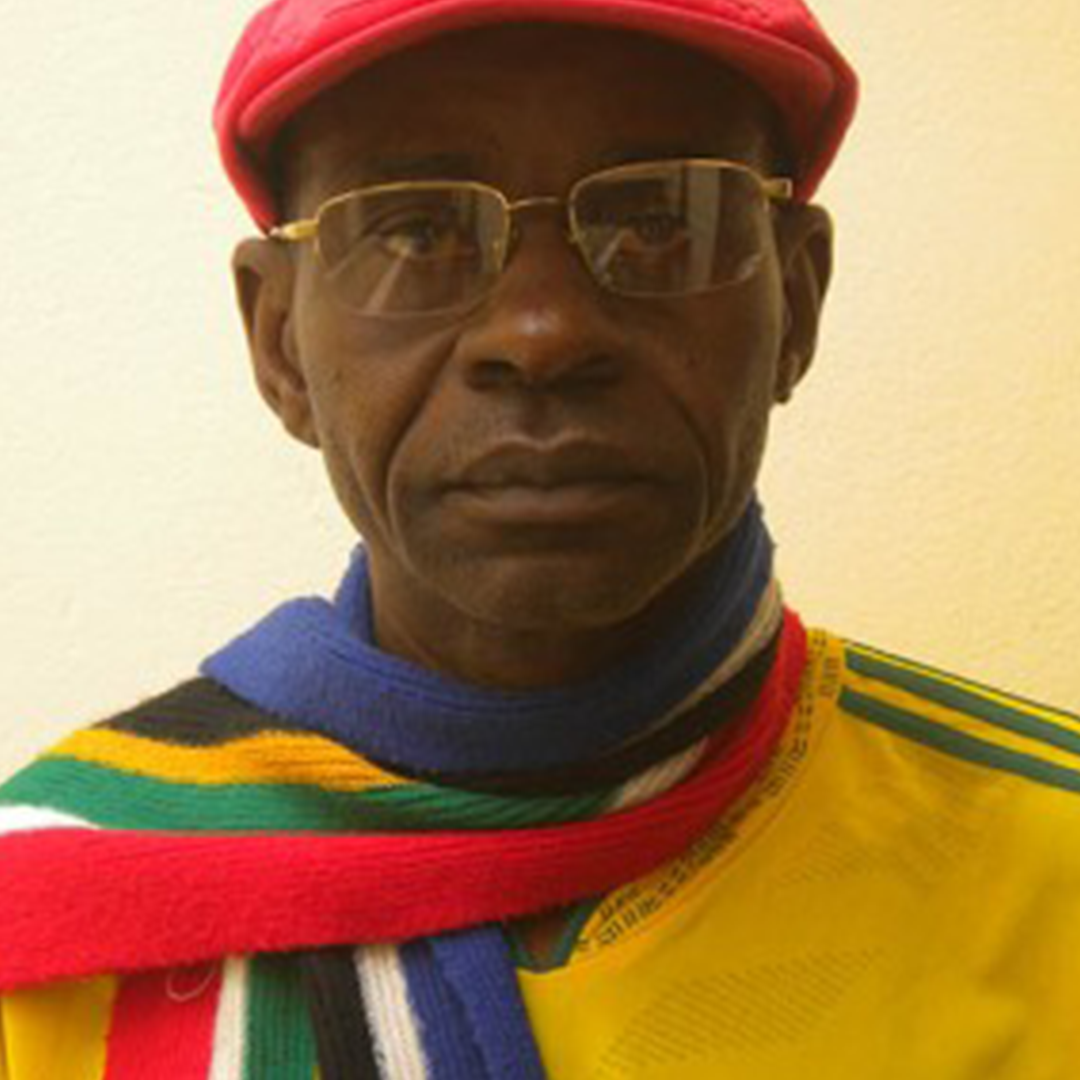

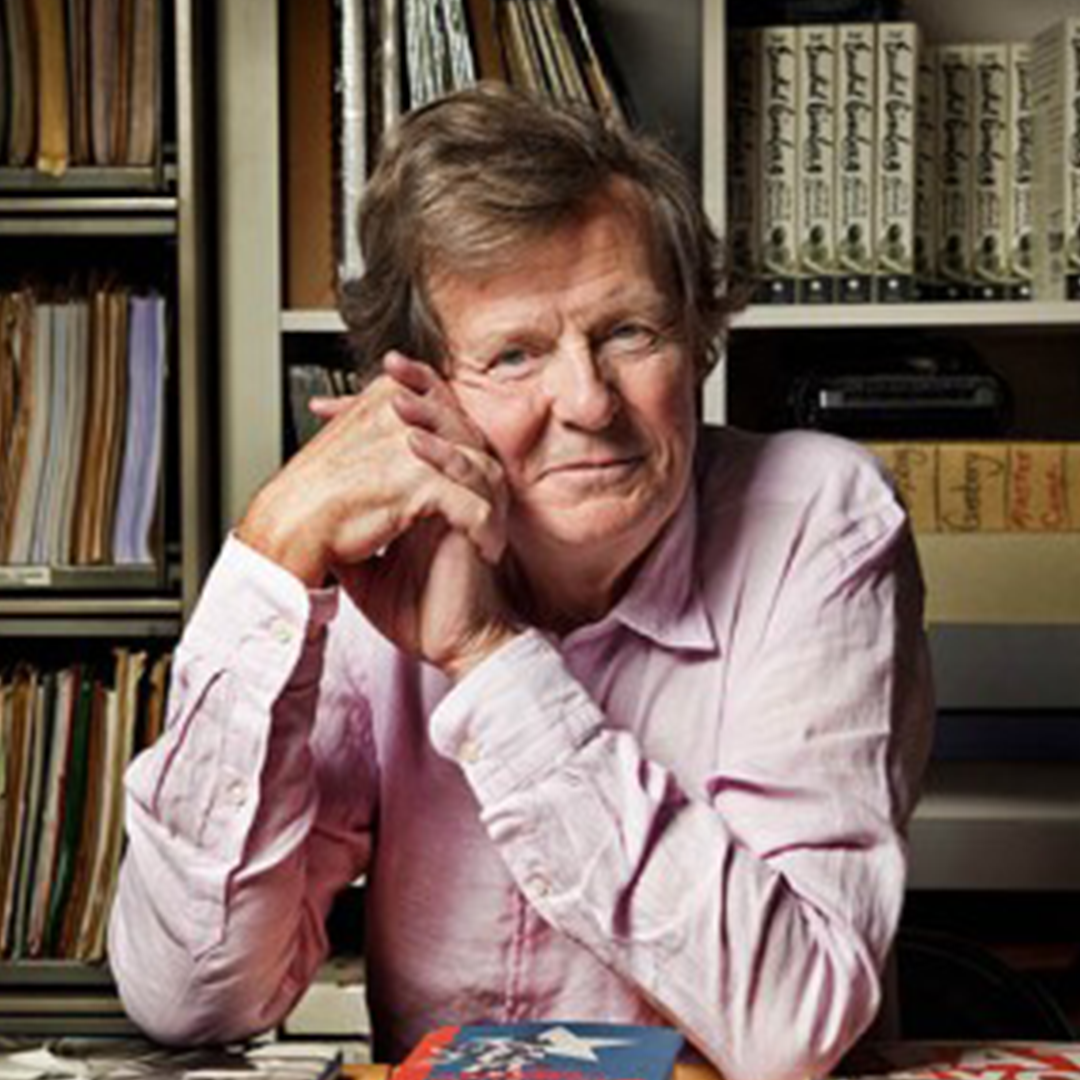
 The Spring 2020 issue of Index on Censorship magazine looks at our own role in free speech violations. In this issue we talk to Swedish people who are willingly having microchips inserted under their skin. Noelle Mateer writes about living in China as her neighbours, and her landlord, embraced video surveillance cameras. The historian Tom Holland highlights the best examples from the past of people willing to self-censor. Jemimah Steinfeld discusses holding back from difficult conversations at the dinner table, alongside interviewing Helen Lewis on one of the most heated conversations of today. And Steven Borowiec asks why a North Korean is protesting against the current South Korean government. Plus Mark Frary tests the popular apps to see how much data you are knowingly – or unknowingly – giving away.
The Spring 2020 issue of Index on Censorship magazine looks at our own role in free speech violations. In this issue we talk to Swedish people who are willingly having microchips inserted under their skin. Noelle Mateer writes about living in China as her neighbours, and her landlord, embraced video surveillance cameras. The historian Tom Holland highlights the best examples from the past of people willing to self-censor. Jemimah Steinfeld discusses holding back from difficult conversations at the dinner table, alongside interviewing Helen Lewis on one of the most heated conversations of today. And Steven Borowiec asks why a North Korean is protesting against the current South Korean government. Plus Mark Frary tests the popular apps to see how much data you are knowingly – or unknowingly – giving away.